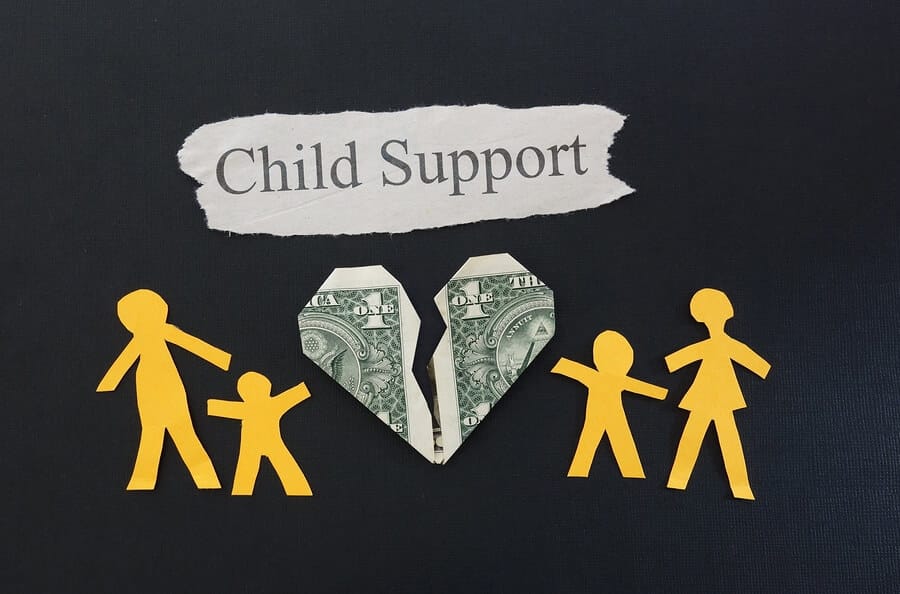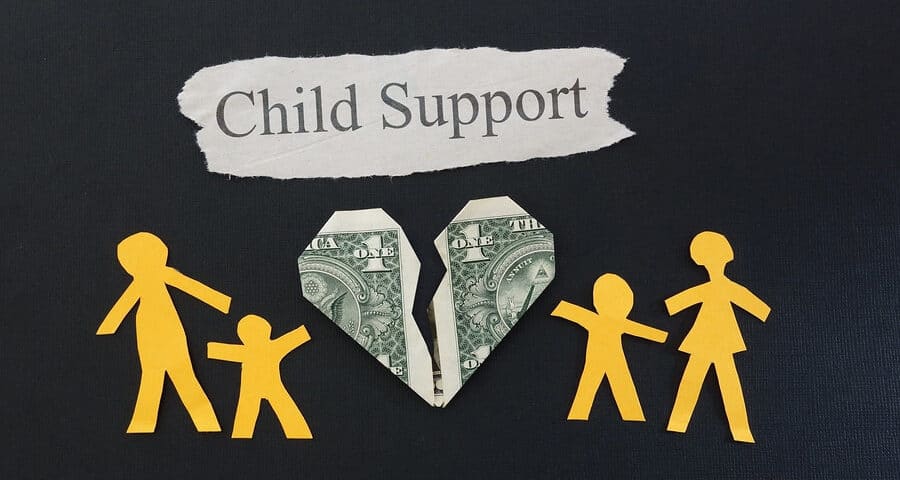 Whenever married parents separate or divorce, or when just one unmarried parent has custody of their child, the non-custodial parent (who the child doesn’t live with) may be ordered by the court to pay part of her or his income as child support. There are other scenarios where support may arise as well. Less often, when neither of the parents has custody of a child, the court might order them to pay a third party child support who is caring for their child. No matter what the situation is that causes the necessity for child support, it may be helpful to think of the legal right of child support as a right that a child has (which it is technically), for her or his proper upbringing and care, no matter who actually gets the child support payments to pay for the child’s care.
Whenever married parents separate or divorce, or when just one unmarried parent has custody of their child, the non-custodial parent (who the child doesn’t live with) may be ordered by the court to pay part of her or his income as child support. There are other scenarios where support may arise as well. Less often, when neither of the parents has custody of a child, the court might order them to pay a third party child support who is caring for their child. No matter what the situation is that causes the necessity for child support, it may be helpful to think of the legal right of child support as a right that a child has (which it is technically), for her or his proper upbringing and care, no matter who actually gets the child support payments to pay for the child’s care.
The Role Played by the Government in Child Support – Since in the U.S. almost fifty percent of marriages end in a divorce, and nearly twenty-five percent of children at birth have unmarried parents, it means that child support regulation is a very important social issue. While in the past it was left up to parents to arrange and pay for child support, these days child support state enforcement agencies are taking a very aggressive role when it comes to seeking payments for support from non-custodial parents. The court and agency frequently will together in implementing a child support withholding order, with the amount of the support being taken automatically from the payer’s paychecks. If these child support payments end up becoming delinquent, other collection mechanisms can be implemented by the agency, such as seizing personal property or real estate or withholding from tax refunds for support amounts.
Child Support Orders – The family court issues child support orders, which bases the support amount on state guidelines for child support. The amount of support that is required to be paid is established by the guidelines, based mainly on the number of children and the non-custodial parent’s income. Other relevant factors might also be taken into account by the court, such as the needs of the children and the custodial’s parent’s income. The court may deviate from these guidelines if it has significant reasons to do this. The custodial parent earning a high income doesn’t in and of itself justify deviating from the guidelines since children under the law have the right to benefit from the incomes of both parents. If circumstances change, child support may be increased if the changed circumstances justify the increase, such as an increase in the cost of living or payer’s income, an increase in the needs of the child, or a reduction in the custodial parent’s income, then the amount might be reduced if the reduction is justified by the changed circumstances.
Child Support and Unmarried Parents – In cases that involve unmarried mothers who seek child support, the initial step might be to legally establish the paternity of the father. This can be done voluntarily by the father, but if he refuses to, then in order to establish paternity, the mother might need to file a lawsuit. Paternity is normally established using DNA (genetic) testing. The “putative” father (or alleged one) will be ordered by the court to submit to testing if he doesn’t do so voluntarily. After paternity has been established, then a child support order will be issued by the court in a way that is similar to what is used in a divorce case.
Child Support and Interstate Moves – whenever a non-custodial parent relocates to a different state, the custodial parent might need to depend on the Revised Uniform Reciprocal Enforcement of Support Act to ensure or implement child support payments. the Act provides the mechanisms where a support order that one state has issued can be enforced by another state’s courts.
Don’t Second-Guess Things: Get Professional Child Support Assistance Today – If you are faced with a potential child support dispute or issue, whether as a single parent or due to divorce, a family law lawyer can help by aggressively and fairly representing either parent in a child support proceeding. A lawyer will work diligently to obtain the best result possible in a child support entry, enforcing an existing order, or in disproving or establishing paternity.
Contact Toporowska Law to get started today.

